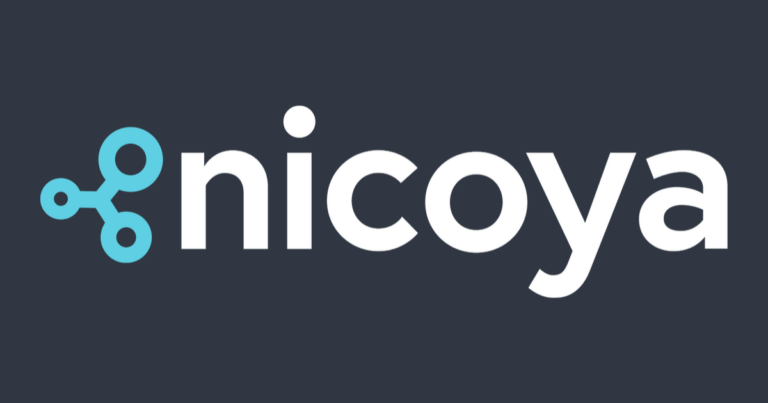Delcath Systems, Inc. Reports Promising Phase 2 CHOPIN Trial Results for Liver-Dominant Metastatic Uveal Melanoma
Delcath Systems, Inc. (NASDAQ: DCTH), a pioneering interventional oncology company focused on liver-directed therapies for primary and metastatic liver cancers, today announced the results of its CHOPIN randomized Phase 2 clinical trial. The results were presented by Principal Investigator and Lead Author, Professor Ellen Kapiteijn, MD, from the Department of Medical Oncology at Leiden University Medical Center, during the 2025 European Society of Medical Oncology (ESMO) Annual Congress. These findings provide encouraging evidence for the combination of Delcath’s CHEMOSAT® Hepatic Delivery System (HDS) with systemic immune checkpoint inhibitors (ICIs) in patients with metastatic uveal melanoma (mUM).
CHOPIN Trial Design
The CHOPIN Trial was an investigator-initiated, prospective, randomized Phase 2 study designed to evaluate the safety, tolerability, and efficacy of the CHEMOSAT HDS with melphalan for percutaneous hepatic perfusion (PHP), either alone or in combination with the systemic ICIs ipilimumab and nivolumab. A total of 76 patients with metastatic uveal melanoma were enrolled and randomized in a 1:1 ratio to receive either PHP alone or PHP combined with ipilimumab and nivolumab.
CHEMOSAT serves as the device component of the FDA-approved combination product, HEPZATO KIT™ (HEPZATO [melphalan] for Injection/Hepatic Delivery System). HEPZATO KIT is approved in the United States for liver-directed therapy in adult patients with uveal melanoma who have unresectable hepatic metastases involving less than 50% of the liver. It is administered every six to eight weeks, for up to six treatments.
Ipilimumab and nivolumab are immune checkpoint inhibitors approved by the FDA and the European Union for the treatment of unresectable metastatic melanoma. Typically, these agents are administered intravenously every three weeks for four doses, followed by maintenance nivolumab monotherapy every two to four weeks until disease progression.
In the CHOPIN trial, patients in the PHP group received two PHP treatments at weeks one and seven. In the combination group, patients received four cycles of ipilimumab (1 mg/kg) and nivolumab (3 mg/kg) every three weeks over nine weeks, alongside two PHP treatments at weeks one and seven. Notably, the study design did not include additional PHP beyond two treatments or maintenance nivolumab. Following the nine-week treatment period, patients were monitored until disease progression.
Key eligibility criteria included unresectable hepatic metastases affecting 50% or less of the liver, with limited extrahepatic disease. The trial’s primary endpoint was one-year progression-free survival (PFS), while secondary endpoints included safety, best overall response rate (ORR), overall survival (OS), and hepatic progression-free survival.
CHOPIN Trial Results
The results of the Phase 2 CHOPIN Trial revealed a substantial improvement in outcomes for patients receiving the combination of PHP with ipilimumab and nivolumab compared to PHP alone.
Progression-Free Survival:
- One-year PFS was 54.7% (95% CI: 36.8–69.5) in the combination group versus 15.8% (95% CI: 5.8–30.1) in the PHP group.
- Median PFS was 12.8 months (95% CI: 9.2–15.4) for the combination group compared to 8.3 months (95% CI: 6.0–9.6) for the PHP group.
- The hazard ratio for progression or death was 0.34 (95% CI: 0.19–0.60; P<0.001), demonstrating a significant reduction in risk with combination therapy.
Overall Survival:
- One-year OS was comparable between groups: 82.8% (95% CI: 65.6–91.9) in the combination group and 82.2% (95% CI: 64.5–91.6) in the PHP group.
- Two-year OS was 49.6% (95% CI: 29.3–67.0) for the combination group, compared to 22.1% (95% CI: 7.9–40.6) for PHP alone.
- Median OS was 23.1 months (95% CI: 20.2–38.5) for the combination group and 19.6 months (95% CI: 15.2–21.8) for the PHP group.
- The hazard ratio for death was 0.39 (95% CI: 0.20–0.77; P=0.006), indicating a substantial survival benefit for the combination treatment.
Best Overall Response Rate:
- The ORR was 76.3% (95% CI: 59.4–88.0) in the combination group versus 39.5% (95% CI: 24.5–56.5) in the PHP-only group (P<0.001).
Grade 3 or higher treatment-related adverse events were more common in the combination group (81.6% vs. 40.5%; P<0.001), but these events were largely manageable using standard care protocols. Overall, the combination therapy was well tolerated, with the profile of adverse events consistent with those observed when PHP and checkpoint inhibitors are used individually. Importantly, no new safety signals were reported.
The detailed abstract of these results was presented at the ESMO 2025 Congress during the Mini Oral Session LBA59.
Expert Commentary
Gerard Michel, Chief Executive Officer of Delcath Systems, highlighted the significance of these findings:
“The CHOPIN trial clearly demonstrates that adding ipilimumab and nivolumab to PHP is both effective and tolerable. The efficacy results are impressive, especially considering the regimen included only two PHP treatments and did not incorporate maintenance nivolumab. Since many oncologists initiate systemic therapy first, this approach offers critical lead time for patient assessment and scheduling PHP, helping overcome logistical barriers and supporting broader adoption in the near to medium term.”
Dr. Vojislav Vukovic, Chief Medical Officer of Delcath Systems, added:
“In addition to the immediate potential benefit for patients with metastatic uveal melanoma, the observed synergy between PHP and ICIs in the CHOPIN trial may extend to other cancers characterized by liver-dominant disease. Delcath looks forward to exploring these possibilities in future clinical investigations.”
Liver metastases have historically been associated with poorer outcomes when treated with ICIs across multiple tumor types, including melanoma, non-small-cell lung cancer (NSCLC), urothelial carcinoma, and renal cell carcinoma. This reduced efficacy is thought to result from the liver’s immunosuppressive microenvironment, which is increasingly understood through ongoing preclinical and clinical research. The CHOPIN results suggest that combining liver-directed therapy with ICIs may help overcome these barriers, improving patient outcomes.
Conference Call and Webcast Information
Delcath Systems will host a conference call and webcast on Monday, October 20, 2025, at 8:45 a.m. Eastern Time to discuss the Phase 2 CHOPIN trial results and provide an overview of the company’s financial performance and guidance.
Dr. Vincent T. Ma, Assistant Professor and Medical Oncologist at the University of Wisconsin Department of Medicine, will join the call with pre-recorded remarks. Dr. Ma is an active user of HEPZATO KIT for metastatic uveal melanoma, an expert in cutaneous melanoma, and co-author of a seminal Nature Medicine paper exploring mechanisms of liver immune tolerance in cancer.
Dial-in Information:
- Toll-Free (U.S.): 1-877-407-3982
- International: 1-201-493-6780
- Webcast: https://viavid.webcasts.com/starthere.jsp?ei=1738867&tp_key=6f3953dd75
A replay of the webcast will be available shortly after the call and archived on Delcath’s investor website: https://investors.delcath.com/news-events/events-and-presentations.
The CHOPIN Phase 2 trial represents a significant step forward in the treatment of metastatic uveal melanoma, demonstrating that combining liver-directed therapy with systemic immunotherapy can produce meaningful clinical benefits while maintaining a manageable safety profile. These findings may inform future treatment strategies for liver-dominant metastatic cancers and expand options for patients who historically face limited outcomes with standard immunotherapy alone.



